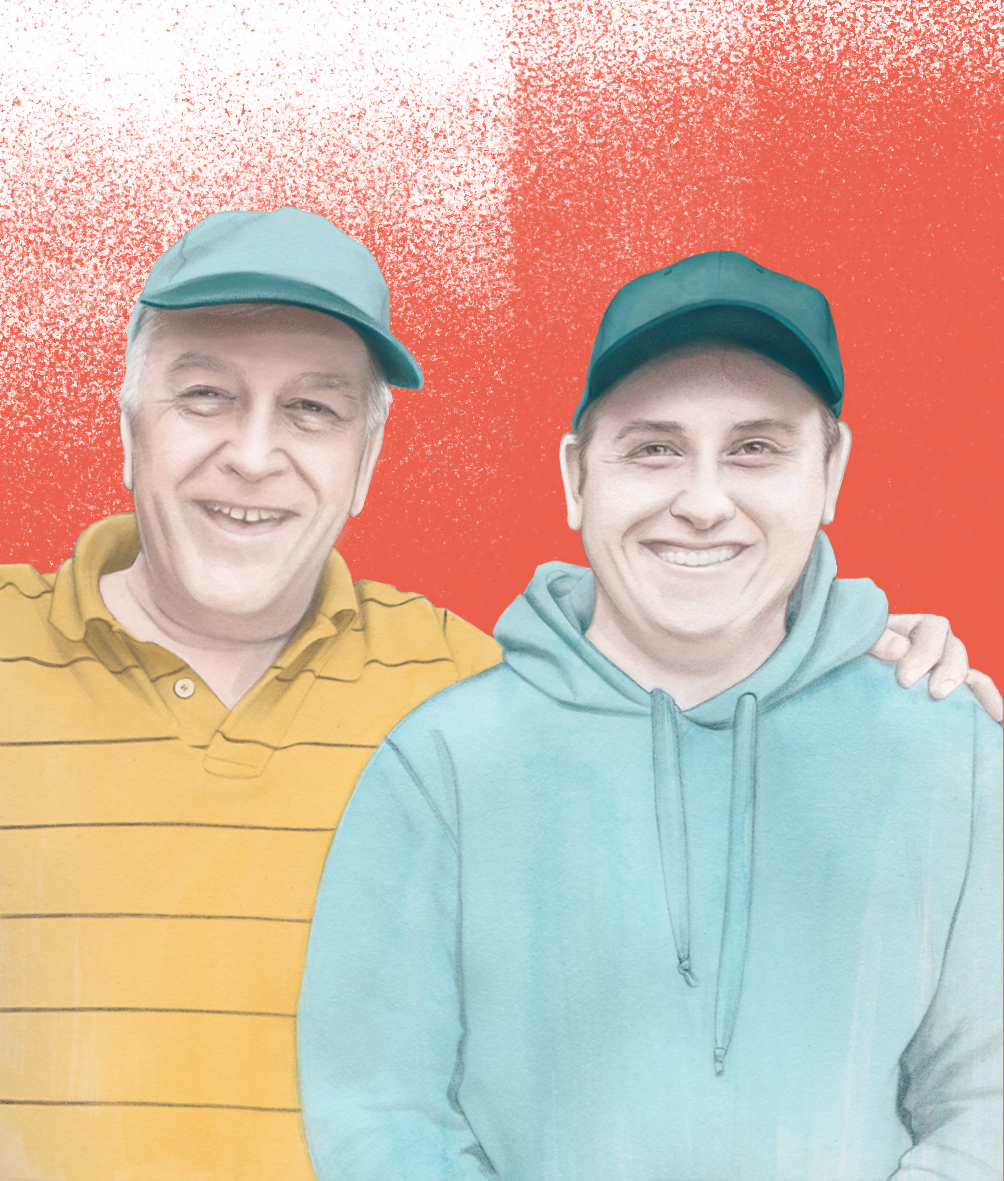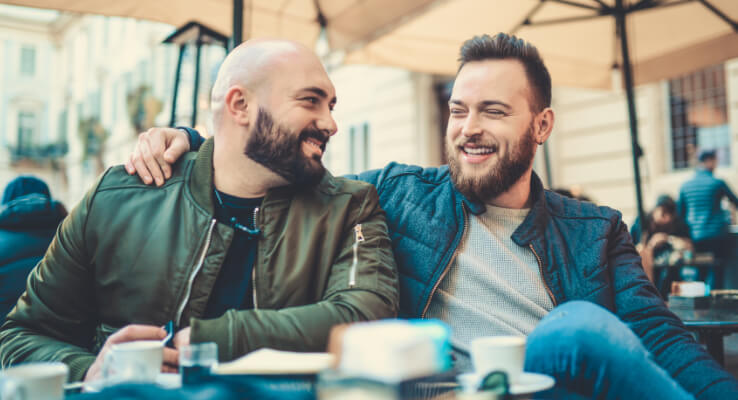Thirty-year-old Jesse Stephens works as a primary school teacher. He is the son of Ian Stephens (read Ian's story here). He reflects on his father’s diagnosis of prostate cancer — and what is means for him and his future.
Growing up, one of the many things I admired about my Dad was his willingness to be involved in our lives, to take us out and explore the world, and the fact that I could have an honest conversation with him without feeling judged. As a teen, I remember him taking me to these father and son sexual health classes for an evening — it wasn’t so much the education that was important as I’d grown up looking through my Mum’s midwifery textbooks as a child and knew a lot of it already — it was more about fostering a connection. 
As I’ve gotten older, I’ve also been able to appreciate the influence and positivity he’s bought to others over the course of his long career. Around the table each night Dad would tell stories about people he’d encountered at work and the funny things that had happened during the course of the day. You could tell how much meaning helping people brought to his life. Even now, he’s involved in a prostate cancer support group in a voluntary capacity. He’s giving back as both a clinician, as well as through his personal experience. He’s always lived a life for other people, and not just for himself. I think that’s influenced my own desire to give back to the community as an educator.
Dad working as a nurse was quite a radical thing back in the day — not a lot of men did it. His work, and the fact that he’s quite a sensitive and reflective person anyway, means his understanding of masculinity is probably a bit different to most people’s. Discussions around masculinity have been a recurring theme in our relationship.
When Dad was diagnosed with prostate cancer, I was just out of high school. We went around to my sister’s house because he wanted to break it to us as a family. He told us that the doctors had caught it early and they were reasonably confident it hadn’t spread to the rest of his body. I remember him saying it could take many years to surface. He reassured us in was going to be a ‘watch and act’ scenario. He told us in a very rational, clinical way.
Despite this, when you hear the word ‘cancer’, you can’t help but think the worst. I felt a looming sense of dread. Cancer was always something that I thought happened to other people, not to me, not to my family. While he told us in a way that alleviated our anxieties, it was still a big shock.
Growing up, I thought my Dad was invincible, that he would be around forever. It reminded me of the time my grandfather was dying, and how traumatic that was for Dad. I was quite young, and we were on a holiday in New Zealand when Dad got a phone call. He was told that Grandad had had a heart attack and wasn’t going to pull through. As we made our way up the island to fly home, I overheard Dad on the phone, distraught and crying, hoping that Grandad would hold on for a bit longer so that Dad could say goodbye. It was the first time I’d seen my Dad deal with a medical issue in an emotional way.
I’ve always had a strong desire to be a father, and I’ve just assumed my dad would be around to spend time with my own children as a grandfather. Hearing he had cancer made me question all that.
When the cancer appeared to be growing and a prostatectomy was recommended, Dad became less of a clinician and more of a human. He went from being a medical person to being a patient. He had to start thinking about the effect it was going to have on his life and his body, his relationship with Mum, and his perception of his manhood. I think him having to have surgery took him as much by surprise as it did us. The tables were turned, and it became important to support him and his mental health throughout the journey.
Following surgery, he was concerned about incontinence. Every year we go the Boxing Day Test — it’s an important tradition for us. I know he was worried as it was a 45-minute train ride, and then a 10-minute walk to the MCG — would he be able to hold on? It’s a big challenge to your masculinity to be concerned about wetting yourself in public. Having to worry about managing his day-to-day life and what he could expect of himself were some of the challenges he faced.
Following the surgery, I noticed his mood changed quite a bit. His erections didn’t come back and as time went on, that became harder for him. He started to question his ability to be a man, to have a healthy relationship with Mum. He’s always been proud of his ability to show affection to Mum and he needed to re-evaluate how he expressed himself. Mum’s been tremendous throughout all this. I know that as a couple that they would go on to find other ways of expressing love that didn’t just hinge on that sexual connection anymore.
Dad and I talk honestly about the struggles he’s had. I think that Dad’s not just talking with me about these issues for his sake, but for my sake as well. My uncle has recently been diagnosed with prostate cancer, and it’s likely that Grandad also had it. There is a good chance that I might go through it too. I haven’t yet been tested, but on the advice of doctors, I probably will. Like with any cancer, if there’s a genetic link, you want to get onto it early.
If I had any advice for sons of men with prostate cancer, it would be to keep affirming their father's masculinity and sense of manliness, irrespective of the challenges they go through or the implications on their body. Even though you can’t help what’s going on in their body, you can support their self-perception and their understanding of who they are as men.
This whole experience has certainly made me value the time I have with Dad much more. He’s moved beyond that five-year window so he’s officially been cleared of cancer, but there’s always the worry that it can re-surface. I’m grateful that, thanks to the marvels of modern science, I’ve been gifted the opportunity to have an ongoing relationship with him.
Dad was a tremendous father to me, and I look forward to modelling a lot of my fathering on what I learnt from him. I feel more confident now he’ll be around to meet my own children, and that we’ll keep going to the Boxing Day matches together for a while yet!





